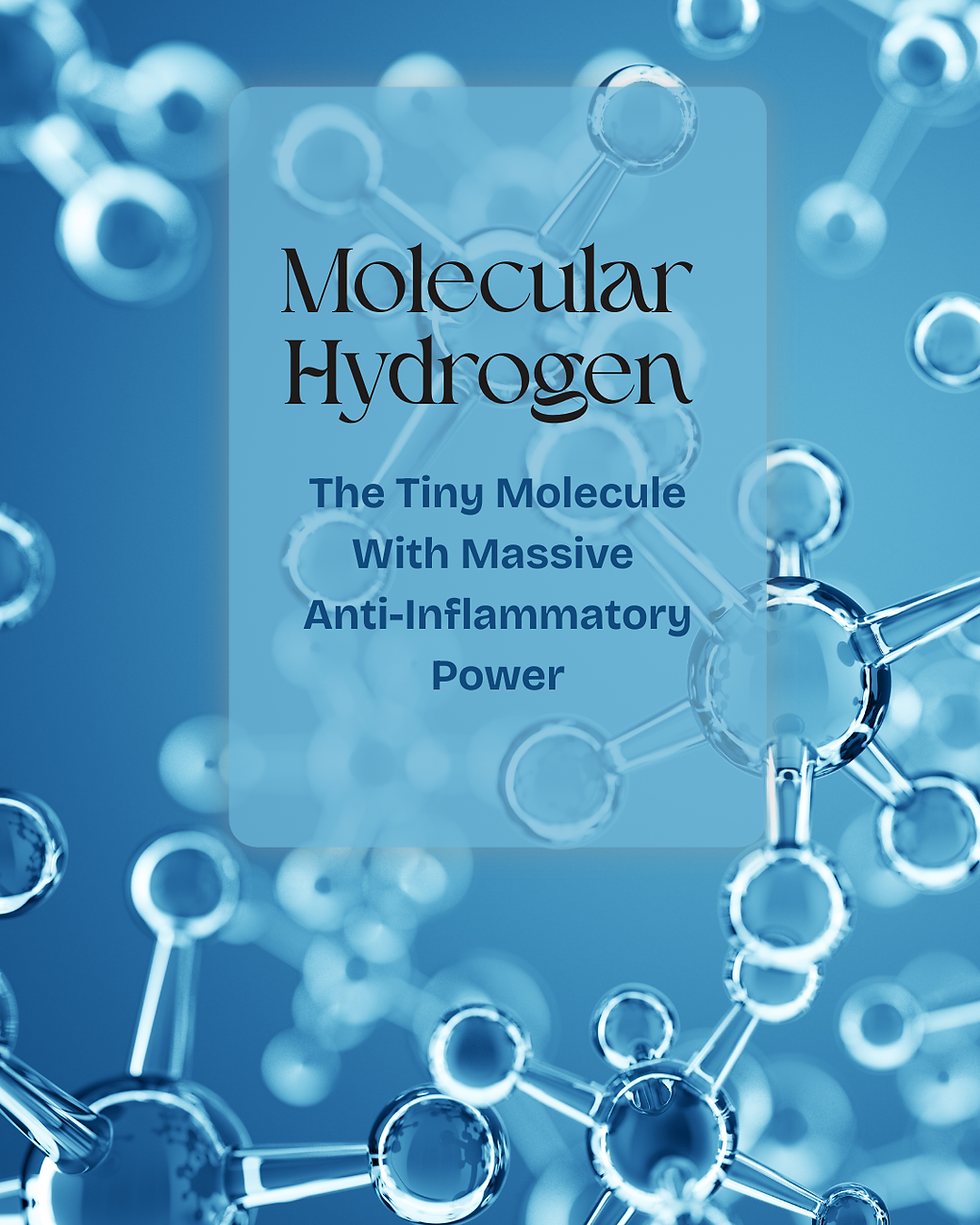Peptide Therapy: The Tiny Molecules Transforming Health, Beauty, and Performance
- Lisa Fortin

- Oct 2, 2025
- 3 min read
By Dr. Lisa Fortin, ReYouvenate Wellness Centre
If you’ve ever wondered why your body sometimes heals quickly — a cut closing, muscles bouncing back after a workout, or your skin glowing after a good night’s sleep — the answer often liets in peptides. These tiny chains of amino acids act as messengers, telling your cells when to repair, rebuild, and rejuvenate.
At ReYouvenate Wellness Centre, I’ve seen firsthand how targeted peptide therapy can unlock changes in energy, recovery, skin health, metabolism, and more. But it’s important to understand what peptides are, what they aren’t, and how science (and the FDA) currently views their use.
What Are Peptides?
Think of peptides as short proteins with big jobs. Your body makes thousands of them naturally. Each peptide acts like a key that fits into specific “locks” (receptors) on your cells, triggering precise actions such as:
Building collagen and elastin for smoother skin.
Signaling the brain to regulate appetite.
Stimulating tissue repair in muscles, tendons, or ligaments.
Supporting learning, memory, or stress resilience.
In short: peptides don’t force your body to do something unnatural — they remind it how to do what it already knows best.
Why Is Peptide Therapy Gaining So Much Attention?
The global interest in peptides comes from three main drivers:
Beauty & Anti-Aging: Collagen-stimulating peptides in skincare and injectable protocols are now rivaling Botox and fillers in popularity.
Healing & Recovery: Athletes, weekend warriors, and chronic pain sufferers are discovering peptides like BPC-157 for musculoskeletal repair.
Metabolic & Brain Health: From weight loss (GLP-1 based peptides like semaglutide) to neuropeptides for brain fog and focus, peptides are expanding beyond aesthetics into whole-body wellness.
This isn’t fringe science anymore. Many peptide drugs are in clinical trials, and a select few are FDA-approved for very specific conditions.
FDA Status: What You Need to Know
As of today:
FDA-Approved Peptides:
Bremelanotide (PT-141, Vyleesi®): approved for hypoactive sexual desire disorder in premenopausal women.
Setmelanotide (Imcivree®): approved for rare genetic obesity disorders.
GLP-1 receptor agonists (Semaglutide, Tirzepatide): peptide-based, FDA-approved for type 2 diabetes and obesity.
Investigational / Off-Label Peptides: Many peptides frequently discussed in wellness (e.g., BPC-157, CJC-1295, Ipamorelin, TB-500) are not FDA-approved. They are sometimes compounded for clinical use, but the FDA has raised safety concerns about purity, immune reactions, and limited human trial data.
Cosmetic Peptides: Topical peptides in serums and creams are considered cosmetic ingredients, not drugs, and are widely available.
Key Takeaway: Some peptides are FDA-approved for narrow uses. Many others remain investigational or off-label. Medical supervision is essential.
Areas Where Peptide Therapy Shows Promise
At ReYouvenate, we explore peptides in a personalized, root-cause context. The most
exciting applications include:
Beauty & Skin Health
Copper peptides (GHK-Cu) for collagen synthesis and hair health.
Matrixyl and palmitoyl peptides for wrinkle reduction.
Topical vs microneedling-enhanced delivery.
Healing & Recovery
BPC-157 for tendon, ligament, and gut repair.
TB-500 fragments for tissue regeneration.
Synergy with regenerative therapies like PEMF and shockwave.
Brain & Cognitive Health
Neuropeptides like Selank and Semax (investigational in the U.S., studied in Europe).
DSIP (delta sleep-inducing peptide) for sleep rhythm support.
Early research into peptides for neuroprotection in Alzheimer’s and stroke recovery.
Sexual Health
PT-141 (Bremelanotide) FDA-approved for female sexual dysfunction.
Investigational uses in men for erectile function.
Body Composition & Weight
GLP-1 peptides (semaglutide, tirzepatide) for appetite regulation and weight loss.
Setmelanotide for rare obesity syndromes.
Research peptides like MOTS-C under early study.
Strength & Performance
Growth hormone secretagogues (CJC-1295, Ipamorelin) explored for recovery and lean mass.
Not FDA-approved; clinical caution required.
The ReYouvenate Approach
Our philosophy is simple: use peptides as part of a broader, regenerative plan. That means:
Comprehensive health assessments (labs, InBody scans, functional evaluations).
Root-cause analysis (hormones, gut health, inflammation).
Integration with lifestyle, nutrition, and non-pharmaceutical modalities.
Peptides are never a one-size-fits-all quick fix. They’re tools — and in the right context, they can be transformational.
Differentiation Hack: The “Signal vs. Suppress” Paradigm
Most drugs suppress symptoms (block pain, reduce acid, lower blood sugar). Peptides, on the other hand, signal the body to heal, repair, or rebalance itself.This is the “a-ha” shift I want my patients to experience: health isn’t about forcing the body, it’s about reminding it how to thrive.
What’s Next in This Blog Series?
This is the first in a 7-part series on peptide therapy. Upcoming blogs will dive into:
Beauty Peptides (Skin & Hair)
Sexual Health
Body Composition & Weight
Strength & Muscle Support
Each will highlight the latest science, FDA context, practical applications, and how we incorporate peptides safely at ReYouvenate.




Comments